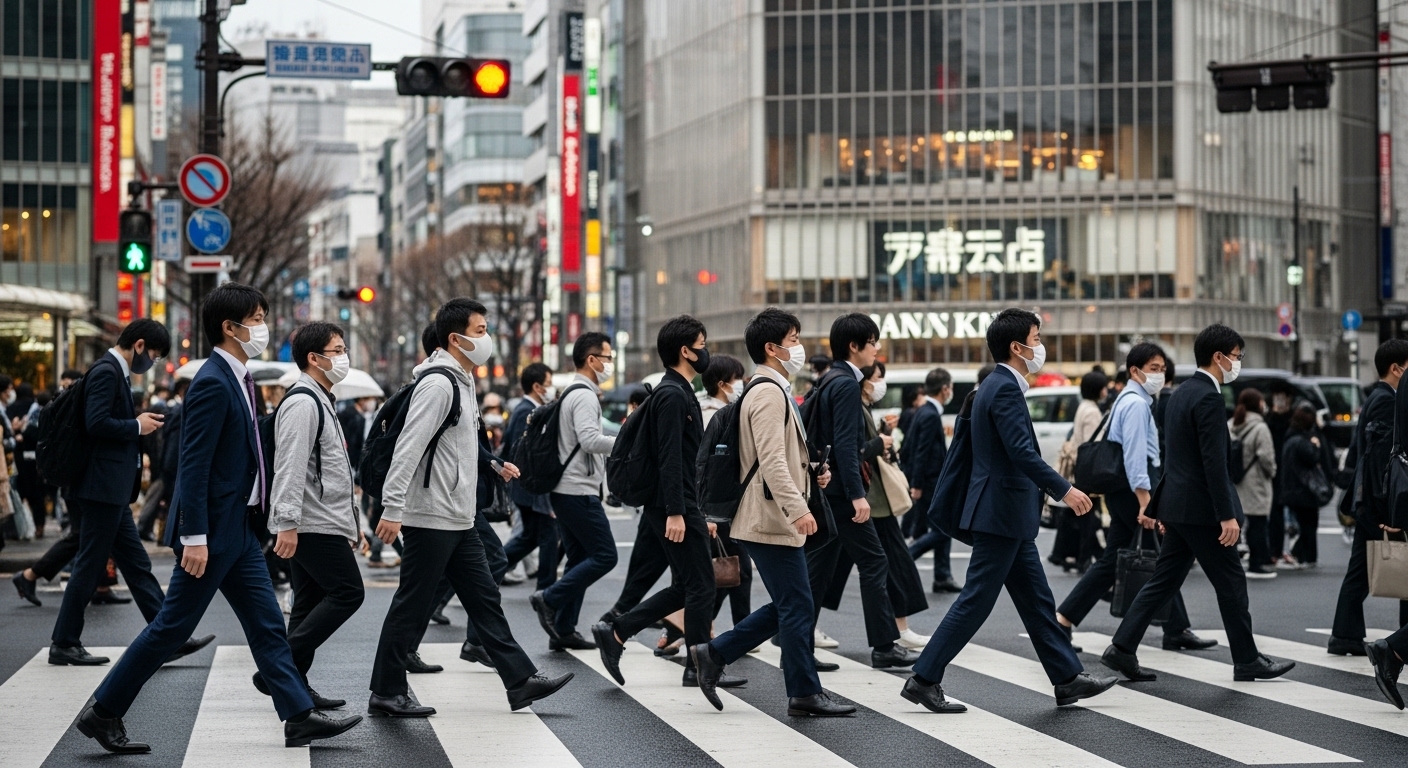
Many travelers are surprised to see people in Japan still wearing masks outdoors. Behind this habit are cultural reasons such as severe pollen allergies, social awareness, and a strong sense of courtesy that remained even after the pandemic. These factors shape daily behavior in Japan.
This guide explains why masks remain common outside in Japan, covering topics like pollen season, allergy prevention, social etiquette, and regional differences. You’ll also learn when masks are helpful during your trip and how to navigate local customs comfortably.
Cultural Reasons Why Japanese People Wear Masks Outdoors
In Japan, masks are not only for disease prevention—they are also considered a form of etiquette to avoid making others uncomfortable. In large cities, many people wear masks during pollen season or when dealing with allergies. Even when someone feels slightly unwell, it is common to wear a mask out of consideration for others.
Government guidelines and health experts also highlight the benefits of mask-wearing, reinforcing this long-standing custom. These cultural values and strong health awareness explain why many people continue to wear masks outdoors. For travelers, this habit represents Japan’s unique “culture of kindness.”
Why Pollen Allergies Are Severe in Japan and How Masks Help
Japan experiences extremely high levels of cedar pollen every spring, making hay fever a nationwide issue. Government reports show increasing pollen levels, and many people rely on masks to reduce allergy symptoms. In major cities, pollen often mixes with PM2.5 and other pollutants, making outdoor protection even more important.
High-quality masks designed for pollen and allergy protection are easy to find in Japanese drugstores, and they are essential for many residents. For visitors with allergies, masks are not just a habit—they are a practical tool for staying healthy and enjoying a more comfortable trip.
Mask Etiquette in Japan: Preventing Colds and Respecting Others
In Japan, wearing a mask is not only about protecting yourself from a cold—it is also an important social rule to avoid spreading illness to others. On trains, buses, and other forms of public transport where people stand close together, masks have long been accepted as everyday etiquette. Health experts and government guidelines also highlight their effectiveness in reducing droplets, reinforcing this habit nationwide.
For many international travelers, it may feel unusual to see healthy people wearing masks. However, this behavior reflects a core Japanese value: avoiding inconvenience to those around you. In Japan, masks are viewed not just as medical protection but as a key part of public courtesy and community-minded behavior.
You might be interested in this
Why Mask Habits Remain After COVID-19: Social Pressure and Peace of Mind
Even after the COVID-19 situation improved, mask-wearing in Japan did not disappear immediately. Social psychologists note that “not wanting to stand out” influences many people, making it difficult to remove a mask in crowded places. Government surveys also show that a notable number of people continue wearing masks for reasons unrelated to infection prevention.
For many, masks also provide a sense of security. They are linked to values like self-protection and consideration for others. This is why visitors often see people wearing masks in busy streets—it reflects not only health concerns but also the lingering influence of social comfort and long-standing custom.
Urban vs. Rural Japan: How Mask Usage Differs by Region
Mask-wearing trends in Japan vary greatly between major cities and rural areas. In dense urban centers like Tokyo and Osaka, concerns about colds, pollen allergies, and public hygiene remain high. Because commuters encounter large crowds every day, the mask culture naturally persists. Research also shows that areas with higher population density tend to have stronger mask habits.
In contrast, rural regions—where people have fewer close-contact encounters outdoors—see more residents choosing to remove their masks. Still, many hospitals and public facilities continue to encourage mask use as a courtesy. Travelers will find it helpful to check the atmosphere of each region in advance to feel more comfortable during their trip.
When to Wear a Mask in Japan: Indoor and Outdoor Situations for Travelers
In Japan, the need for a mask depends on the situation. Medical facilities such as hospitals and pharmacies still recommend mask use, and tourists are expected to follow these guidelines. Indoors—especially in crowded trains or large shopping malls—many people wear masks for cold prevention, allergy relief, and general hygiene, creating a sense of reassurance for those around them.
Outdoors, more people are removing their masks than before, but crowded tourist spots and events may still encourage wearing one. For visitors, the safest approach is to “observe the atmosphere and follow local behavior.” During pollen season, masks are especially helpful for allergy protection, so bringing one can make your stay much more comfortable.
Conclusion
The reasons Japanese people wear masks outdoors are rooted in several cultural factors: pollen allergy prevention, cold avoidance, and a strong sense of consideration for others. Understanding these customs helps travelers enjoy Japan more comfortably and avoid misunderstandings. When unsure, observing how locals behave is the most reliable guide. For more useful tips, explore our articles on everyday Japanese etiquette and public-transport manners.

 日本語
日本語 中国語
中国語 Español
Español